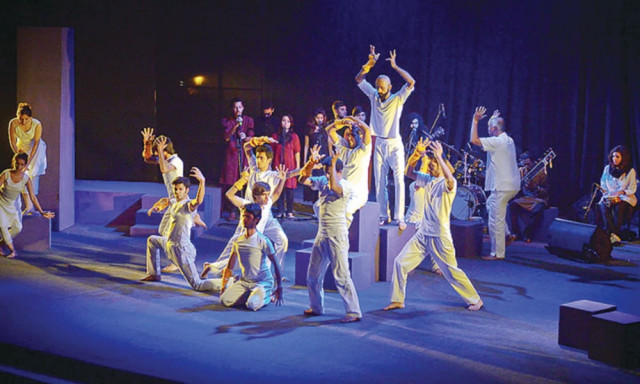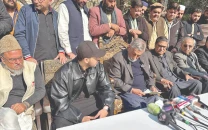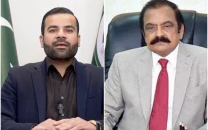Shakuntala: Kalidasa’s lost love to be found in Karachi
The play to be performed from April 17 is another reminder of our shared origins with India.

Whenever we try and tackle the genesis of the Pakistani identity, a series of Pandora boxes open up. It all starts from the basic question of the origin of social beings and then the process of delving into our political, religious and geographic history begins. With geography taking us to places we don’t know about and don’t wish to visit, but are a seminal part of our narrative.
Shakuntala’s performance by Napa (National Academy of Performing Arts) from April 17 onwards, will be another reminder of our shared origins with India. After all, India was the cradle of the theatre arts that originated from the east, just like Greece served to be the mother ship for Western tradition of theatre.

For the co-director, Zain Ahmed, the reasons for picking up Shakuntala are more than just a story that comes right out of our soil, but rather, something that has been engrossed in our hearts and reiterated time and again.
“Shakuntala is the archetypal love story of South Asia,” Ahmed told The Express Tribune. “Boy meets girl, they fall in love and are separated by external forces, only to come back together. This is our standard love story and in my opinion, also the foundation on which most of our romantic literature rests,” he continued.
Shakuntala is by Kalidasa, a widely recognised poet and dramatist of the Sanskrit language. It is regarded as Kalidasa’s best play. Shakuntala and several of his other plays have been translated into different languages.
On the other hand, it’s not the first time that NAPA is performing Shakuntala; they have staged it earlier in Karachi and also in New Delhi, India. Both performances were critically acclaimed for their experimental approach towards theatre.
“This time around it’s going to be totally different, as we have a different cast altogether. The cast has set its own set of imaginations and come up with very personal metaphors during the performance,” said Ahmed.
Elabourating on the change of cast, he said that since it’s a huge cast and no one plays one particular character, new faces are only going to add value to the play.
“The actors have just one direction and that is to perform their first emotional response to the central character’s feeling and they have to express that in their own way,” explained Ahmed.
As a result of this the new cast members have come with very radical visual imagery essentially, going through the same process as the previous cast did.
Ahsan Bari, a graduate from Napa, who had given the music for the previous performance, is also involved with this production. For him, it’s a complete change of the style of music that is being performed.
“Last performance purely revolved around Indian classical music, whereas, this time around, we are heading towards world music, with many progressive instruments in the arrangement. The percussion section is going to be more elaborate and will drive the entire show,” said Bari to The Express Tribune.
Published in The Express Tribune, April 9th, 2014.
Like Life & Style on Facebook, follow @ETLifeandStyle on Twitter for the latest in fashion, gossip and entertainment.



















COMMENTS
Comments are moderated and generally will be posted if they are on-topic and not abusive.
For more information, please see our Comments FAQ